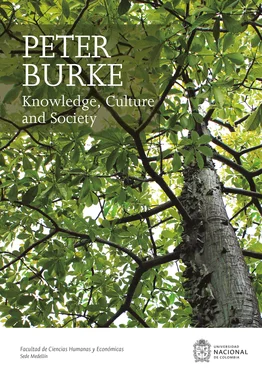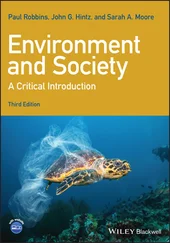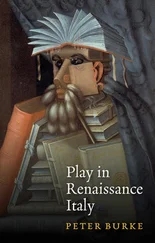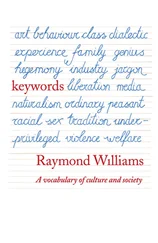1. I thank Juan Felipe Gutiérrez Flórez and the historian Joan Manuel Largo Vargas for their support and for critically reading and commenting on this text. Some of these considerations were presented as a preamble to the Seminar Contextos del Conocimiento, given by Professor Dr. Peter Burke in Medellín in 2015, and some others, during the 3rd Congress of Intellectual History in Latin America, held in Mexico DF in November 2016. In general, they are the result of the academic and teaching work for courses and research projects.
2. Academic Affairs Director and Associate Professor at the Universidad Nacional de Colombia, Sede Medellín. PhD in Empirische Kulturwissenschaft (Cultural Studies) of the Ludwig-Uhland-Institut, Tübingen University, Germany. Research fellow at the Max-Planck-Institut für europäische Rechtsgeschichte in 1997 and 1999; and postdoctoral researcher in Germany in 2003, 2008 and 2010. Historian from the Universidad Nacional de Colombia, sede Medellín. National Culture Award 2000. Medal of University Merit 2011. She has published, among others, Hechicería, brujería e Inquisición en el Nuevo Reino de Granada. Un duelo de imaginarios; Hexerei und Zauberei im Neuen Königreich Granada, Eine Untersuchung magischer Praxen, and “Quien tal hace que tal pague”. Justicia, magia y sociedad en el Nuevo Reino de Granada; as well as articles in collective works and in national and international journals.
3. Burke Peter, Popular Culture in Early Modern Europe, London, Temple Smith, 1978 (reprint. 1979, 1983, 1988, among many others); Küchenlatein. Sprache und Umgangssprache in der frühen Neuzeit, Berlin, Wagenbach, 1989 (these and other essays were published in Spanish as Hablar y callar. Funciones sociales del lenguaje a través de la historia, Barcelona, Gedisa, 1996), y Kultureller Austausch, Frankfurt am Main, Surhkamp, 2000. See also Soziologie und Geschichte, 11th. ed., Hamburg, Junius, 1989; and Culture and Society in Renaissance Italy, London, Batsford, 1972 (2nd. ed. 1974; 3rd. ed., 1986; reprint. 1988, 1991, 1993, 1994, 1995; 4th. ed., 1999, reprint. 2000, 2003, 2004, 2005, 2006).
4. A more detailed reading of this subject can be found in Ceballos Gómez Diana L., “Reading Peter Burke”, in Chicangana-Bayona Yobenj and Catalina Reyes Cárdenas, Peter Burke, Debates y perspectivas de la Nueva Historia Cultural, Bogotá, Universidad Nacional de Colombia, Alcaldía Mayor, Fundación Gilberto Alzate Avendaño, 2011, pp. 27-33.
5. Steiner George, Después de Babel. Aspectos del lenguaje y la traducción, 1st. ed., México, Fondo de Cultura Económica, 1981.
6. Burke Peter, A Social History of Knowledge. I. From Gutenberg to Diderot, Cambridge, Polity, 2000 (reprint. 2002), and A Social History of Knowledge. II. From the Encyclopédie to Wikipedia, Cambridge & Malden, Polity, 2012. See also Briggs Asa & Peter Burke, A Social History of the Media. From Gutenberg to the Internet, Cambridge, Polity, 2002, and Stiegler Bernard, Die Logik der Sorge. Verlust der Aufklärung durch Technik und Medien, Frankfurt am Main, Suhrkamp, 2008.
7. Cassirer Ernst, Philosophie der Aufklärung, in Werke, Hamburg, Meiner Verlag, 1932. See also his text An Essay on Man. An Introduction to a Philosophy of Human Culture, Yale & New Haven, Yale University Press, 1944.
8. Leroi-Gourhan André, Le geste et la parole, Paris, Albin Michel, 1964.
9. Huizinga wrote an essay on the dangers and difficulties of evolutionist interpretations in El concepto de la historia y otros ensayos, México, Fondo de Cultura Económica, 1980. In the chapter “Problemas de Historia de la Cultura”, section “II. El concepto de evolución sólo puede emplearse en la ciencia histórica de un modo condicionado y sirve muchas veces en ella de traba y obstáculo” (the concept of evolution can only be used in historical science in a conditioned way and it works in it, many times, as an obstacle).
10. Sperber Dan, Le symbolisme en général, Paris, Hermann, 1974, p. 148.
11. Turner Victor, The Forest of Symbols: Aspects of Ndembu Ritual, Ithaca-New York, Cornell University, 1967, and The Drums of Affliction. A Study of Religious Processes among the Ndembu of Zambia, Oxford, Clarendon, 1968.
12. Sahlins Marshall, Islands of History, Chicago, University of Chicago Press, 1985.
13. Cassirer Ernst, Filosofía de las formas simbólicas, 3 volumes, México, Fondo de Cultura Económica, 1971.
14. Eliade Mircea, Imágenes y símbolos. Ensayos sobre el simbolismo mágico-religioso, 4th. reprint, Madrid, Taurus, 1987; Le Chamanisme et les techniques archaïques de l’estase, 2nd. ed., Paris, Payot, 1968; Occultism, Witchcraft and Cultural Fashions. Essays in Comparative Religions, Chicago-London, The University of Chicago, 1976, and Le Sacré et le Profane, París, Gallimard, 1990. Ceballos Gómez Diana L., “Quien tal hace, que tal pague”. Justicia, magia y sociedad en el Nuevo Reino de Granada [2002], 2nd. ed., Medellín, Universidad Nacional de Colombia, 2017; “Magie”, in Lecourt Dominique (Dir.), Dictionnaire de la Pensée Médicale, Paris, Presses Universitaires de France, 2004, pp. 693-697, and Zauberei und Hexerei im Neuen Königreich Granada. Einer Untersuchung Magischer Praxen, Frankfurt am Main, Peter Lang, 1999.
15. To Gadamer, prejudices are part of the hermeneutic process as precomprehension, within the dialogic structure of the understanding/comprehending process, in which the historicity of the interpreter and its time also play an important role. Every act of interpretation is an act of comprehension. Prejudices have been negatively charged since the Enlightenment, vid. Gadamer Hans-Georg, Verdad y Método I, 8th. ed., Salamanca, Sígueme, 1999.
16. Todorov Tzvetan, Simbolismo e interpretación, 2nd. ed., Caracas, Monte Ávila, 1992, and Teorías del símbolo, Caracas, Monte Ávila, 1981. Foucault Michel, El orden del discurso, 3rd. ed., México, Tusquets, 1984, y Barthes Roland, El placer del texto, 4th. ed. México, Siglo XXI Editores, 1982.
17. Elias Norbert, Über den Prozeß der Zivilisation. Soziogenetische und psychogenetische Untersuchungen, 19th. ed., 2 volumes, Frankfurt am Main, Suhrkamp, 1995 [v. 1: Wandlungen des Verhaltens in den weltlichen Oberschichten des Abendlandes – v. 2: Wandlungen der Gesellschaft. Entwurf zu einer Theorie der Zivilisation]. Also, Boltanski Luc, «Taxinomies populaires, taxinomies savantes : les objets de consommation et leur classement”, en Revue française de sociologie, Vol.11, No. 1, 1970, pp. 34-44.
18. Sperber, Le symbolisme…, pp. 103-104, 109 y 117. «Les phénomènes symboliques universels n’ont pas deux interprétations contradictoires, l’une constante et universelle, l’autre variable et propre à chaque société; ils ont une structure focale universelle et un champ d’évocation variable». p. 151. (Universal symbolic phenomena don’t have two contradictory interpretations, one constant and universal and another variable and typical of each society; they have a universal focal structure and a variable field of evocation).
19. Clifford Geertz, “Thick Description: Toward an Interpretive Theory of Culture”, in The Interpretation of Cultures. Selected Essays, New York, Basic Books, 1973, pp. 3-30.
20. Sperber, Le Symbolisme…, p. 11.
21. Bourdieu Pierre, Le sens pratique, Paris, Éditions de Minuit, Maison des Sciences de l’Homme, 1980.
22. Clifford Geertz, Local Knowledge: Further Essays in Interpretive Anthropology, New York, Basic Books, 1983.
23. To cite only one text: Clarke Steve and Tymothy D. Lyons, Recent Themes in the Philosophy of Science: Scientific Realism and Commonsense, Dordrecht, Kluwer Academic, 2002.
24. Todorov Tzvetan, El jardín imperfecto. luces y sombras del pensamiento humanista, Barcelona, Paidós, 1999. The original French title circumscribes the reflections to France: Le Jardin Imparfait. La pensée humaniste en France (1998, Paris, Grasset & Fasquelle).
Читать дальше












